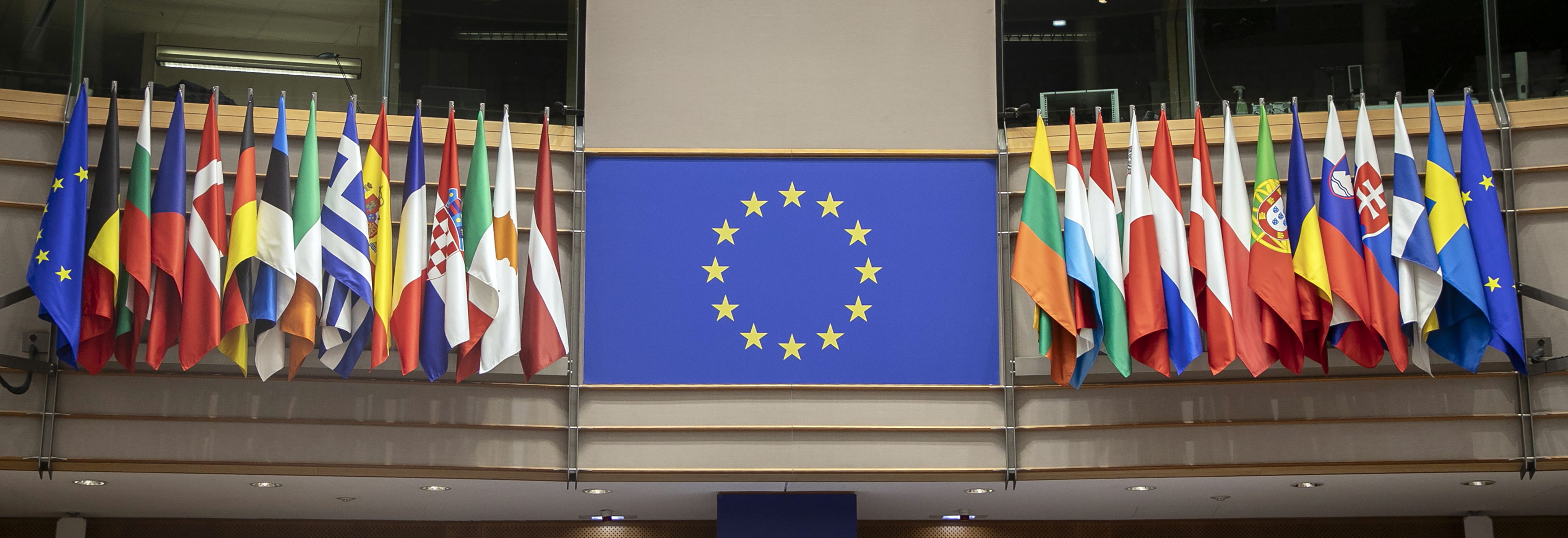The future of democracy and the rule of law in Europe
COSAC - Tuesday morning session 26 March 2024

During the final thematic session of the 71st plenary session of COSAC, held at the European Parliament in Brussels, MPs from all over Europe discussed the future of democracy and the rule of law in Europe.
The debate was introduced by Didier Reynders, European Commissioner for Justice, followed by an interactive session with Koen Lenaerts, President of the Court of Justice of the European Union, Françoise Tulkens, former judge and Vice-President at the European Court of Human Rights, and Arnaud Van Waeyenberge, professor at HEC Paris.
COSAC (Conférence des Organes Spécialisés dans les Affaires Communautaires) brings together the European affairs committees of the national parliaments and a delegation from the European Parliament. In Belgium, it is the Federal Advisory Committee on European Affairs. The COSAC plenary session (24-26 March) is the last in a series of conferences organised by the Belgian parliaments as part of the Belgian Presidency of the Council of the European Union (1 January-30 June 2024).
- European Commission report on the rule of law
European Commissioner Didier Reynders said the Rule of Law, democracy and fundamental rights are values shared by the European Union and all its member states. Unfortunately, the situation in some member states is worrying as the Rule of Law is sometimes questioned. Didier Reynders therefore underlined the importance of the European Commission's annual Rule of Law Report. This checks the country's status on the independence of national judicial systems, and assesses the institutional framework with regard to press freedom and the fight against corruption. The Report makes recommendations to each member state and will be extended in 2024 to include four candidate countries: Albania, North Macedonia, Montenegro and Serbia. Finally, Didier Reynders stressed that promoting the rule of law is a shared responsibility of the European institutions, member states, national governments and parliaments.
- European values
What is the 'legal value' of the values on which the EU is based? That is the question to be answered by the Court of Justice of the European Union. According to Koen Lenaerts, president of that Court, the Court ruled that these values are an integral part of the identity of the European Union as a common legal order. There is an indissoluble link between the values and the EU identity. At the end of his presentation, Koen Lenaerts reminded politicians that they have an important responsibility to defend values such as democracy, an independent judiciary and freedom of the press: "Politicians must respect court rulings even if they fundamentally disagree with them. They should stop publicly undermining the authority of courts, especially if these rulings go against the political opinion of the moment. After all, cases are won and lost in the courtroom, not in the press room."
- Threats to the rule of law
Françoise Tulkens, former judge and vice-president at the European Court of Human Rights, recalled that the rule of law, democracy and human rights have been fundamental European values since the establishment of the Council of Europe in 1949. "The Rule of Law implies primacy of law over politics and respect for law by those who govern and those who are governed. This is the essential guarantee of democracy," Tulkens said. Human rights form the basis of the European area of human rights.
Today, however, democracy is being put to the test. There are three main dangers to democratic institutions: failure to enforce court rulings, threats to the safety of journalists - compromising freedom of expression, and governance and integrity shortcomings. These dangers need to be addressed at political (fighting corruption, transparency, etc.), judicial, moral and intellectual levels.
- Greater involvement of national parliaments
How can national parliaments be involved in defending the rule of law at EU level? In recent years, the EU has tried to address the rule of law crisis through various mechanisms. In most of them, national parliaments have had little or no involvement. While such involvement is just desirable according to Arnaud Van Waeyenberge, professor at HEC Paris.
He further argues that national parliaments could at least monitor the statements in the European Commission's Rule of Law Report and give their views on the situation. Van Waeyenberge: "Attacks on the Rule of Law in the Union often come from the executive, and it is therefore dangerous to rely mainly on the executive to draft the report." From a methodological point of view, a system should be introduced that takes into account the intensity, severity and systematic nature of the violation, because reading these reports may give the impression that violations are trivialised. Finally, the report should also include deadlines and targets to increase effectiveness.
- More information and photos
All the information and additional documents concerning the conference are available on the website of the parliamentary dimension of the EU Presidency.
The meeting can be reviewed on the Parliamentary Dimension's YouTube channel.
High-resolution photos are available on the Parliamentary Dimension's Flickr channel.